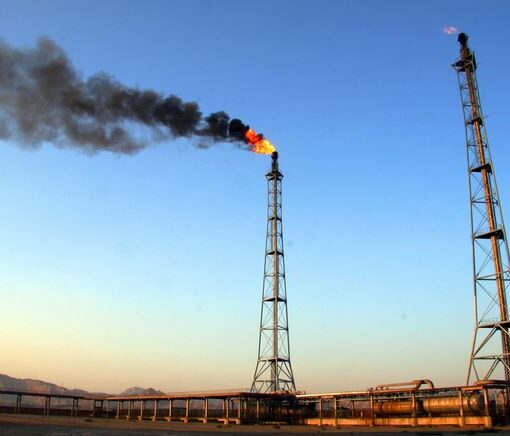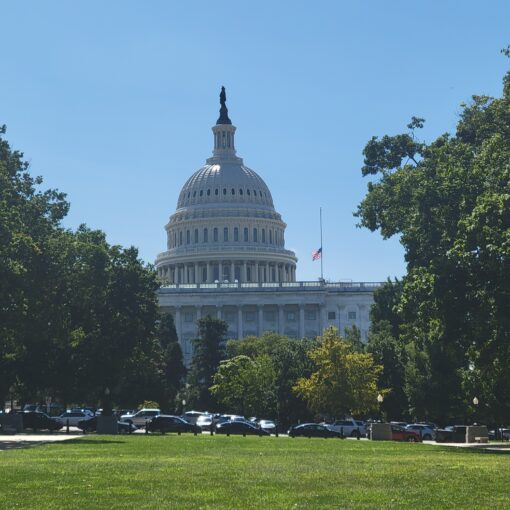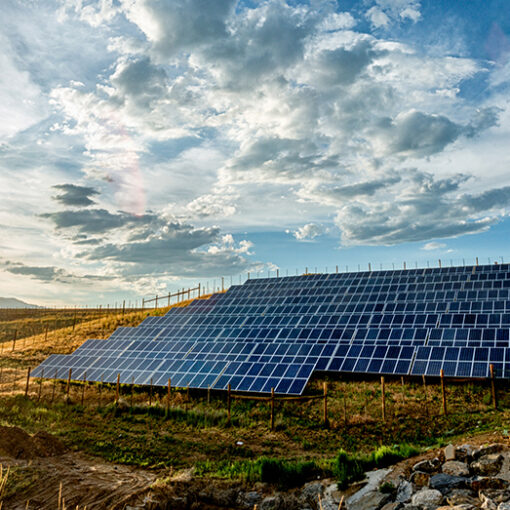On Wednesday, May 25th, 2016, the White House hosted representatives from leading national nurses organizations to discuss the critical importance of fighting climate change to protect public health. This event was organized and led by the Alliance of Nurses for Healthy Environments.
Nurses are on the front lines caring for America’s health. In light of the current and predicted health threats from climate change, this historic event focused on how nursing organizations can address this public health threat through educating their members, leading research, incorporating climate change into their nursing practice, and participating at the local, state, and federal levels on climate policies like the Environmental Protection Agency (EPA)’s Clean Power Plan, which sets the first national limits on carbon pollution from power plants.
Climate change is causing extended heat spells; both flooding and droughts across the country; extreme weather events; larger and hotter forest fires, and threatened food crops. There are a wide range of human health and safety and mental health threats that are posed by climate change’s impacts.
Organizations represented at this meeting:
Alliance of Nurses for Healthy Environments
Association of Women’s Health, Obstetric and Neonatal Nurses
American Public Health Associate Public Health Nursing Section
National Nurses United
National Association of Pediatric Nurse Practitioners
American Association of Nurse Practitioners
American College of Nurse Midwives
National League for Nursing
American Association of Colleges of Nursing
Association of perioperative Registered Nurses
American Association of Occupational Health Nurses
SEIU Nurse Alliance
National Association of Hispanic Nurses
National Association of Neonatal Nurses
Quad Council Coalition of Public Health Nursing Organizations
American Academy of Nursing
National Student Nurses’ Association
National Association of School Nurses
NURSING AND CLIMATE CHANGE
Nurses are on the front lines in caring for America’s health. Nurses recognize that climate change is threatening life as we know it. In light of the current and predicted health threats from climate change, nurses are committed to investing in the necessary knowledge and skills to address the health needs of the American public, to engage in mitigation activities in our personal and professional lives, to participate in climate change-related disaster responses, and to support and engage in policy discussions to insure equitable care for all Americans in the face of climate impacts.
Climate change is causing extended heat spells; both flooding and droughts across the country; extreme weather events; larger and hotter forest fires, and threatened food crops. There are a wide range of human health and safety and mental health threats that are posed by climate change’s impacts. Nurses will help to lead the health charge in preparing for these conditions.
Nurses are the most trusted sources of information to the American public and we are in every community. We are in hospitals, clinics, schools, workplaces, nursing homes and people’s homes. We will take leadership in helping our patients, our communities, and our health care institutions to engage in climate change mitigation activities and in preparing for potential effects of climate change.
WE COMMIT TO THE FOLLOWING:
- To educate ourselves about climate change and staying up to date.
- To make changes in our personal lives to reduce our carbon footprint.
- To educate our patients and their families and the communities we serve about climate change, the associated health effects, and ways in which to both mitigate and respond to climate change.
- To work in our communities to be best prepared for climate change-related emergencies.
- To work within our nursing organizations to help prioritize climate change and its impacts as a nursing issue.
- To work within nursing schools, at colleges and universities, to insure that climate change, including mitigation and response, is a required component of nursing curriculum.
- To raise our voices within our communities and through our nursing organizations in policy arenas at the local, state, and national level to advocate for policies that will mitigate the current trajectory of global warming.
- To engage in policies and practices that will address equitable distribution of resources for those who are affected by climate change impacts.
- To develop research agendas that address climate change’s impacts and nursing interventions
- To work collaboratively with each other in order to bring our best and finest nursing knowledge and skills to mitigate and address the threats from climate change.
We are in a very critical time right now and we need all nurses’ hands and minds and hearts on deck as we accept the challenges posed by climate change.
The benefits of these commitments will be a more knowledgeable and capable nursing workforce and a nursing profession that is united in a cause that will be affecting our health into the 21st Century. This unity and cooperation will serve us well in caring for the health of all American’s.
WE THE UNDERSIGNED JOIN THIS COMMITMENT:
Alliance of Nurses for Healthy Environments
Katie Huffling, MS, RN, CNM
Director
American Academy of Nursing
Cheryl G. Sullivan
Chief Executive Officer
American College of Nurse-Midwives
Ginger Breedlove, CNM, PhD, APRN, FACNM
President
National League for Nursing
Beverly Malone, PhD, RN, FAAN
Chief Executive Officer
National Association of Hispanic Nurses
Adriana Perez, PhD, ANP-BC, FAAN
Chair, Policy Committee
National Association of Neonatal Nurses
Regina Grazel, MSN, RN, BC, APN-C
President
The Nurse Alliance of SEIU Healthcare
Dian Palmer, RN
Chair
Public Health Nursing Section of the American Public Health Association
Patricia J. Kelly
Section Chair
Quad Council Coalition of Public Health Nursing Organizations
Cynthia Stone, DrPH, RN
Chair
National Black Nurses Association
Millicent Gorham
Executive Director




